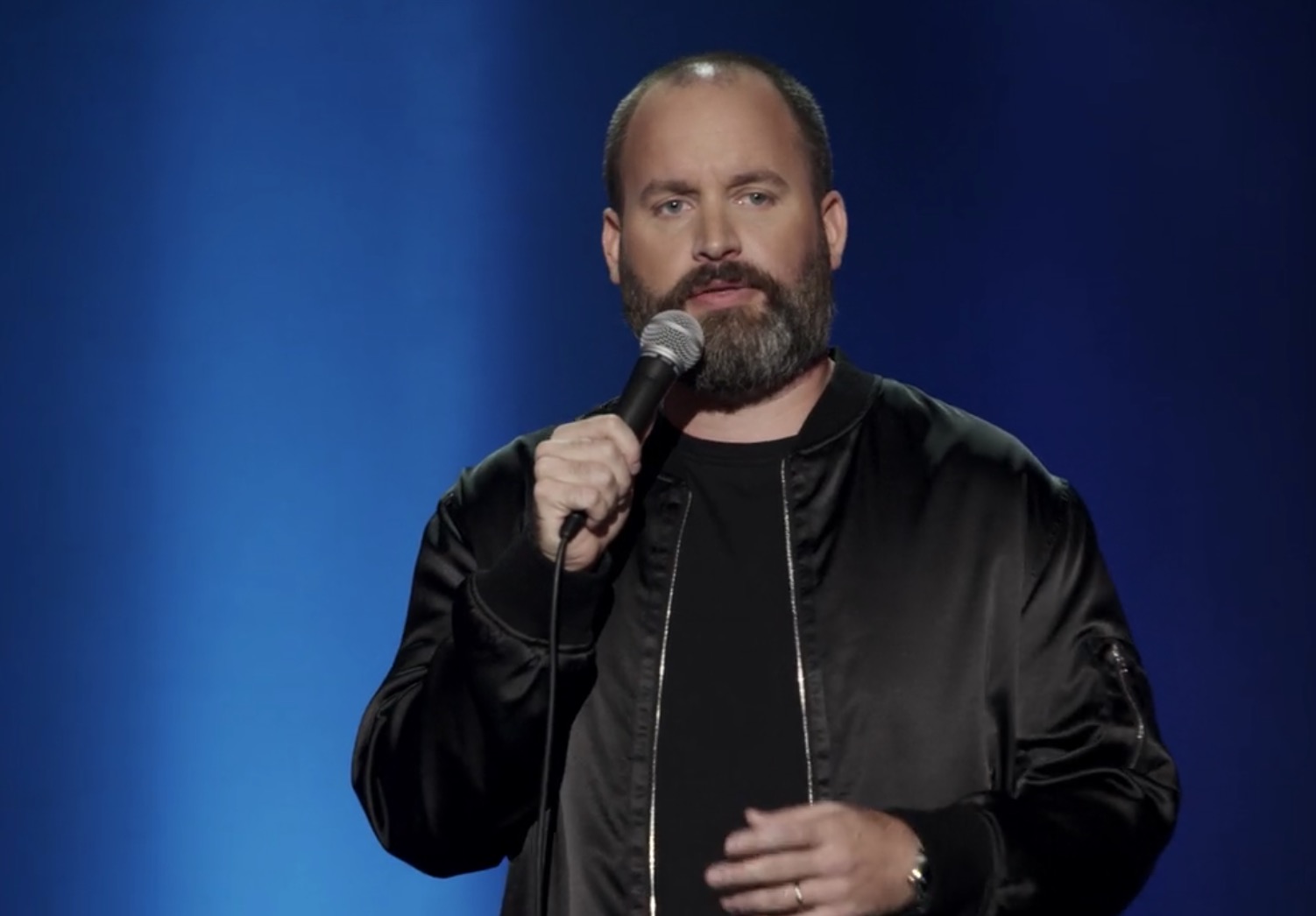Netflix CEO Stands Behind Tom Segura and the Integrity of Comedy in R-Word Controversy


“To suppress free speech is a double wrong. It violates the rights of the hearer as well as those of the speaker.” — Frederick Douglass.
Score one for Frederick Douglass, comedy and artistic integrity.
Netflix cofounder, Chairman and CEO Reed Hastings has taken a bold stance, and a correct stance, backing comedian Tom Segura in the face of heavy criticism over his use of the words “retarded” in Segura’s 2018 Netflix Special, “Disgraceful.”
In an email responding to Harvard Law professor and Constitutional scholar Laurence Tribe, the Netflix chief wrote that although many might find the comments in Segura’s special hurtful, “in this instance they fall within the bounds of creative expression as part of a stand-up comedy performance.”
It gets better.
In a rare, well-articulated defense of language that can both offend and have artistic merit, Hastings explained that “certain portions of any creative work including stand-up comedy can and do offend and are intended to evoke a range of responses.” He pointed out that no one has to watch any particular show on Netflix. “We offer a wide range of perspectives and voices on our service, and work hard to provide context and tools to give our members a higher degree of choice and control over what they and their families watch.”
Bravo, Reed Hastings, and well said. Hastings comments were contained in an email written to Tribe on September 5th. Excerpted comments were published on the website DisabilityScoop.com.
The email was sent in response to a surprising and disappointing email from Tribe who literally wrote the book on the First Amendment. Of course, the First Amendment is not at issue here- there is no attempt by the government to suppress expression in this case, and the First Amendment only applies to government interference with speech. However, anyone who believes in the principals behind the First Amendment would have to also understand the value of free expression, particularly in creative fields, and the harm in suppression regardless of its source. And they would have to abhor attempts to censor artistic content. Particularly artistic content where the joke is about our cultural peculiarities, not a joke about the disability.
“I cannot recall encountering anything more hateful or painful than the stigma Segura has weaponized in the name of ‘comedy,’” Professor Tribe wrote in his email to Netflix demanding that they take action. Tribe called Segura “beyond shame,” for the “painful ridicule of people with disabilities” and called upon Netflix to do something about a clearly unacceptable situation. Tribe is a scholar at the highest ranking law school in America. Even if Mr. Tribe does not have a sense of humor, it is difficult to believe that after watching the special, or even watching the joke out of context, that he could believe Segura was ridiculing people with disabilities.
The so-called hateful joke that is beyond shame does not target or attack anyone with disabilities. It’s baffling to think that someone who has studied language could think that Segura’s joke was hateful or an attack. In fact, Segura’s bit is actually about language, and the odd phenomenon that results when we designate a word as off limits.
He explained in an AOL build interview last Spring that he agrees that boundaries are good, and language does and should change. And that’s in part, what the joke is about. “I am playing the part of someone who is lamenting but accepting that words change,” he said. He believes that the audience and performer at a stand up show enter into an unwritten and unspoken agreement that they are in a place where things can be said that might not be appropriate in the outside world. “This is the context in which to say something that you don’t say outside of here. That’s the unspoken agreement, and its a release for both the performer and the audience. It’s a platform to cross the line or walk the line of Political Correctness for any topic.”
Is it hurtful to some? Yes. Is it possible that there is a stigmatizing effect? Perhaps. But an attack? No.
In another interview (where he ate a lot of hot wings) he pointed out that nobody gets to decide what his intent was in writing that joke. “You don’t get to decide as a viewer or a writer or a reviewer what the person’s intent was who wrote that joke. Deciding that for them is complete nonsense.”
You can judge for yourself by watching the special, it’s on Netflix, intact. It comes in early in the special, at about the 7 minutes mark. And you should hear it, in context. Jokes that are performed aren’t meant to be “read”. Segura jokes is about how you “can’t say retarded anymore” and Tom goes on to discuss the societal usage of the word, and changing cultural values. The bit goes on to discuss other words, expressions that are also unacceptable and outdated in 2018.
Thank you to Netflix for standing by Segura, in the face of a particularly difficult challenge. Nobody wants to be seen as taking a position that could be perceived as against the disabled, but Hastings well-reasoned response is on point, and respectful.
The goal of protecting and uplifting those with disabilities is not only commendable, it’s also imperative. But permitting artists to tackle uncomfortable topics is also commendable and imperative, and its great to see Netflix recognizing that.
You can use flamethrower to kill a bee in your house, but you’ll find yourself wandering around your smoldering couch, blackened walls, while your buddy reminds you that bees are actually good for the planet, and you probably could have just opened a window.
